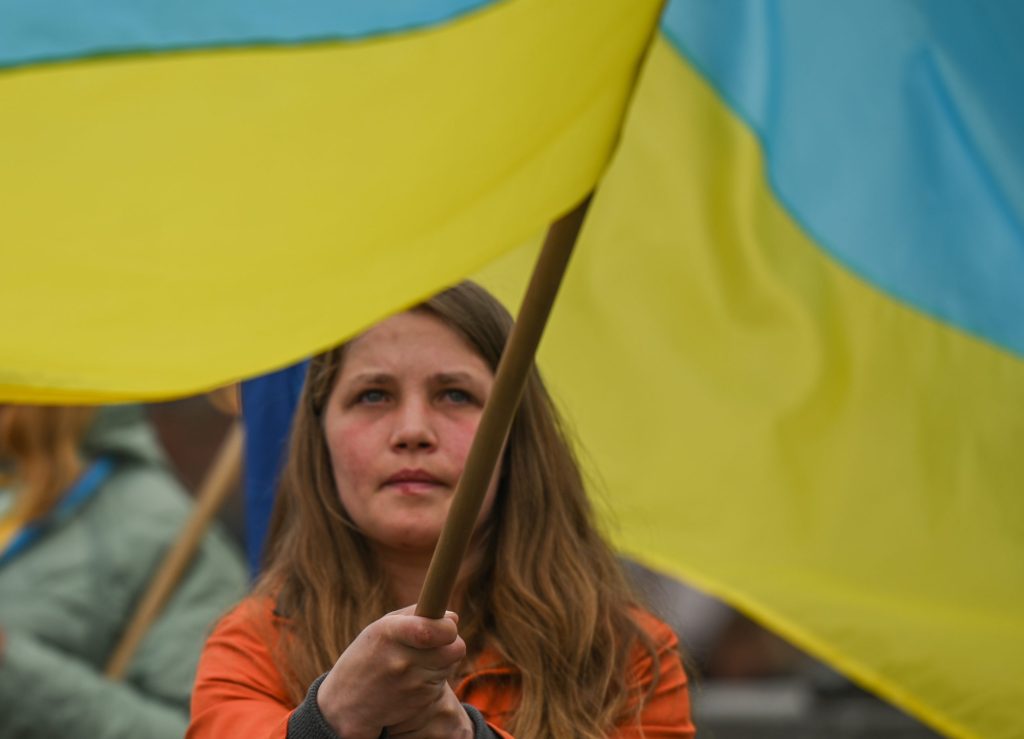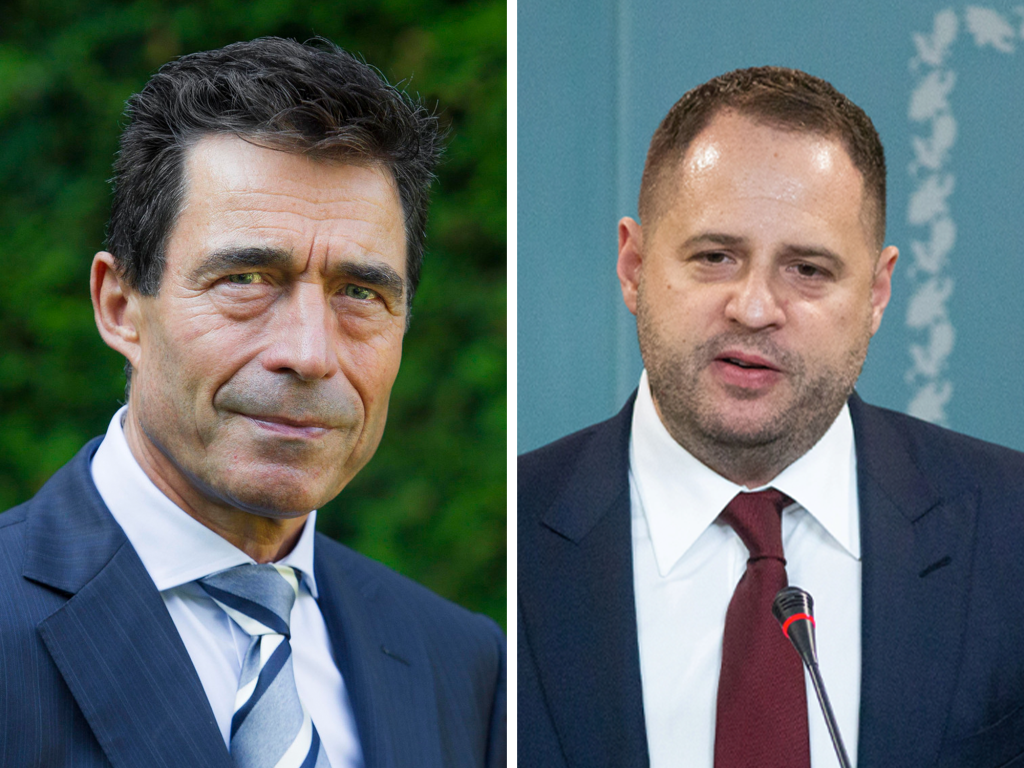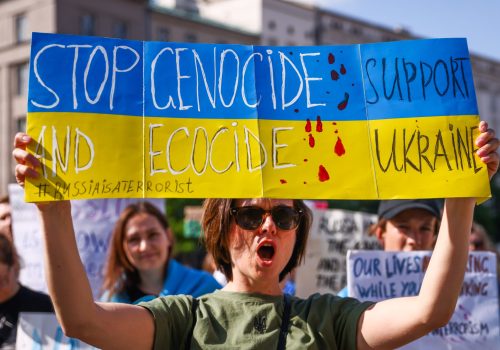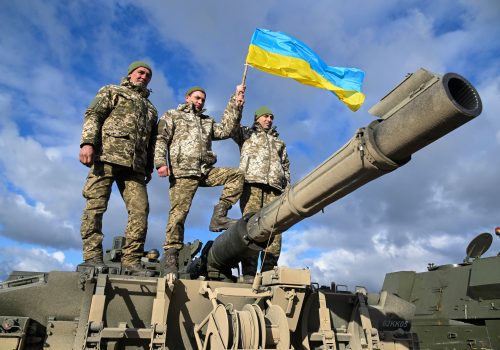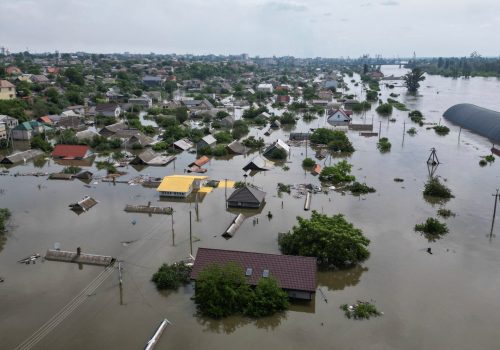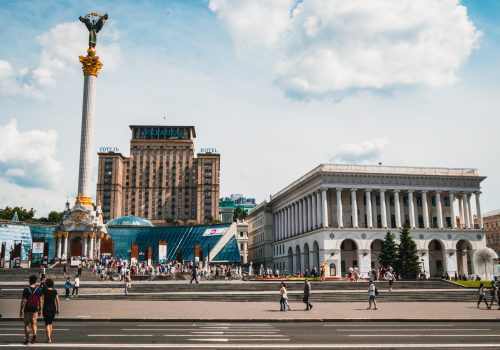
Beyond the battlefield: Why we should invest in Ukraine’s democratic future

With all eyes on Ukraine’s ongoing counteroffensive aimed at liberating the country from Russian occupation, there is also much talk throughout Ukraine and beyond on what happens next. This will be one of the main issues on the agenda at this year’s Ukraine Recovery Conference (URC), which the United Kingdom and Ukraine will host jointly in London in late June. The forthcoming conference will bring together leaders from the international community, international financial institutions, the private sector, and civil society to mobilize international support for Ukraine’s postwar economic and social stabilization.
International support will unquestionably continue to be critical for Ukraine’s ability to withstand and prevail in the face of Russia’s ongoing war of aggression, as it will be for Ukraine’s further recovery and reconstruction. In this vein, it is crucial to acknowledge that Ukraine’s commitment to democratic resilience, both during the war and in the post-war phase, is essential to maintaining and expanding these much-needed investments.
Subscribe to UkraineAlert
As the world watches the Russian invasion of Ukraine unfold, UkraineAlert delivers the best Atlantic Council expert insight and analysis on Ukraine twice a week directly to your inbox.
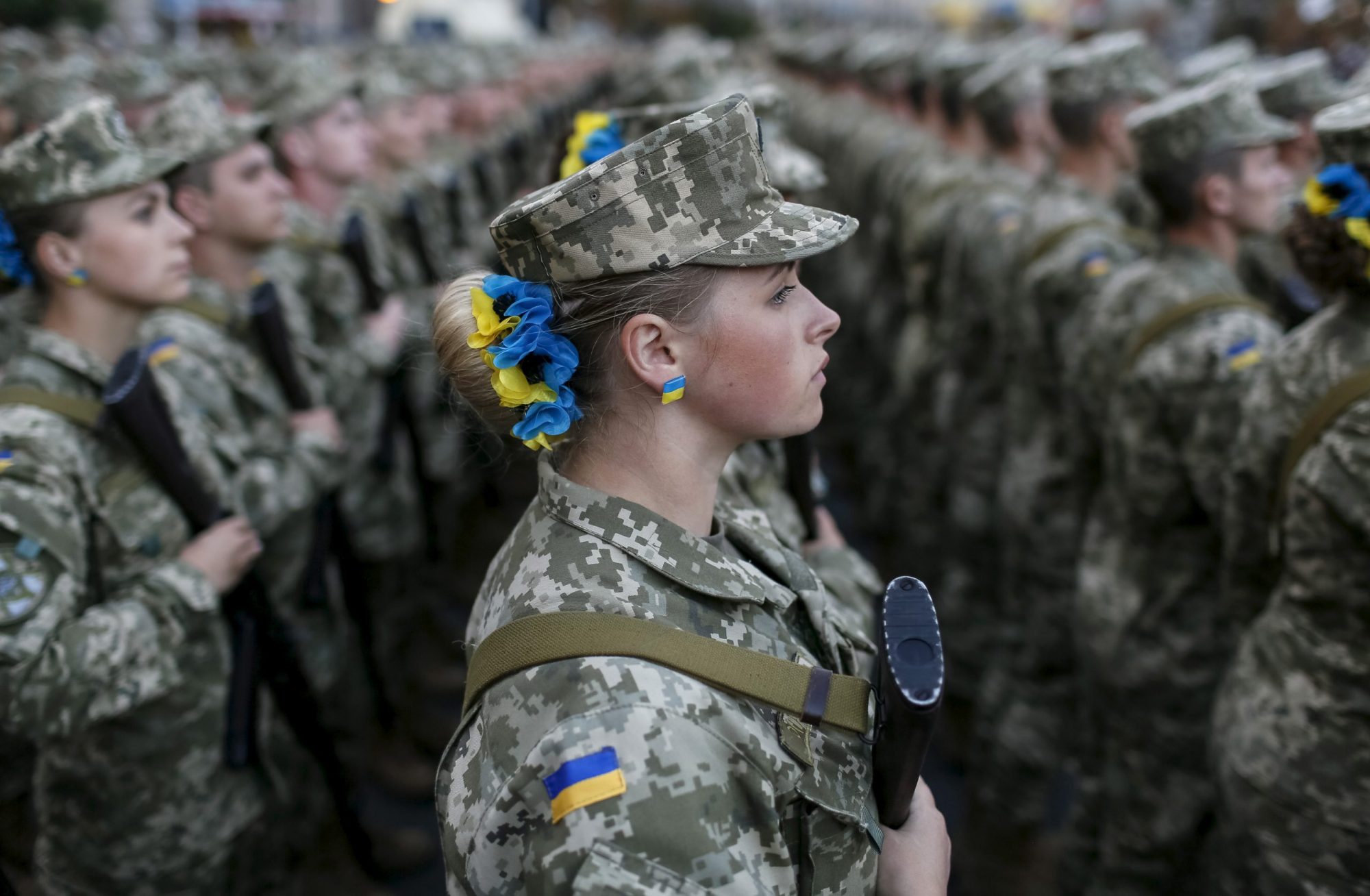
-
-
-
This field is for validation purposes and should be left unchanged.
Prior to the February 2022 full-scale invasion of their country, Ukrainians already had a long history of fighting hard for their rights and freedoms. During the decades following the Soviet collapse, independent Ukraine saw significant progress toward mostly free and fair elections and other basic human rights. The nation also decentralized political and budgetary powers, brought greater transparency to government spending, overhauled its banking sector, and made headway on improving the governance of state-owned enterprises, many of which are slated for privatization.
Despite the horrors of the Russian invasion, a number of current indications suggest Ukraine is ready for further progress. The Ukrainian military is now one of the most powerful in Europe. An influential civil society and a relatively free press are among the stronger pillars of this vibrant democracy. The technology sector is thriving and is helping to dismantle what had been a stifling bureaucracy, one of many hangovers from the Soviet Union. But much work remains.
Eurasia Center events

Today, military victory is obviously Ukraine’s top national priority. At the same time, any Ukrainian will tell you that one of the many realities separating them from Russia is that Ukrainians have a clear military objective and, unlike Russia, know what they are fighting for: freedom. The steps needed to achieve this freedom will extend beyond the battlefield and will include further advances in decentralization, political pluralism, press freedoms, adherence to the rule of law, anti-corruption, human rights, and democratic elections.
It will, for example, be critical for Ukraine to ensure free and fair elections when the country returns to party politics following the end of armed hostilities with Russia. For this to happen, time will be needed to ensure that necessary legislative amendments are passed in an open manner; that political competitors have reasonable and equitable access to the media; that the electoral infrastructure is ready; that financial reporting for political contestants resumes; and that voter registration lists are up to date. As the international community gathers to plan support for Ukraine’s recovery, it is essential that Ukraine’s allies stand ready to support this critical aspect of the nation’s future.
Just as Ukraine has surpassed all expectations in its courageous fight against Russia’s full-scale invasion launched 16 months ago, the nation must also outperform reform expectations once it defeats Russia’s military. After all, this embodies what the nation is fighting for. Further reform measures are also critical as a means of securing continued and expanding support from the country’s international partners, including for recovery and reconstruction.
Ukraine’s heroic resistance to Russia’s war of aggression is the story of a progressing democracy’s resistance to autocracy. The free world is providing military, economic, and humanitarian support for Ukraine because most view Ukraine’s struggle as their own. In this sense, Russia’s full-scale invasion is not only a criminal assault against a sovereign country, but against democracy everywhere. The world needs to see Ukraine’s recovery in the same light as a chance to advance shared democratic values.
Peter Erben is Principal Advisor at the International Foundation for Electoral Systems (IFES) (global) and Senior Country Director at IFES Ukraine. Gio Kobakhidze is Deputy Country Director at IFES Ukraine.
Further reading
The views expressed in UkraineAlert are solely those of the authors and do not necessarily reflect the views of the Atlantic Council, its staff, or its supporters.

The Eurasia Center’s mission is to enhance transatlantic cooperation in promoting stability, democratic values and prosperity in Eurasia, from Eastern Europe and Turkey in the West to the Caucasus, Russia and Central Asia in the East.
Follow us on social media
and support our work
Image: A Ukrainian activist holds a Ukrainian flag during a daily protest. May 2023. (Photo by Artur Widak/NurPhoto)
